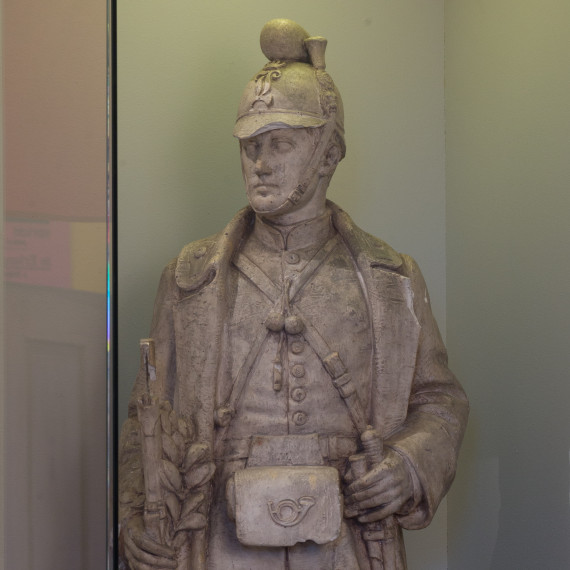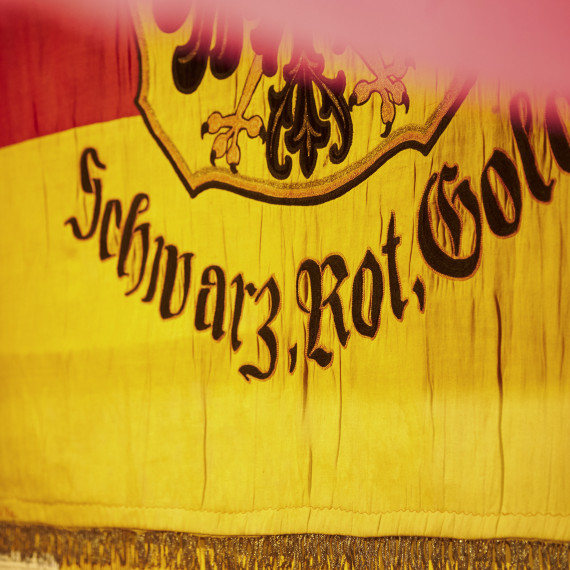The First World War and the Weimar Republic

In the same way as we who live in western industrialised countries understand the concept of universal human rights, so did a fierce nationalism come naturally to Europeans living around 1900. Even Germany's defeat in this war between the great powers, waged from 1914The Reformed Church of France18 with weapons of mass destruction, didn't change the nationalistic stance of most Germans.
One of the heavy burdens that continued to affect the first German republic was that the effects of hyperinflation (1922/23) and the global financial crisis of 1929/30 remained more alive in the public consciousness than the five 'healthy' years that lay between them. Through the devaluation of all bank deposits, pension and war bonds, hyperinflation had affected the wealthy middle class in particular. The world financial crisis caused mass unemployment. The fear of material hardship and social decline preoccupied the minds of many. This meant that the anti-democratic parties KPD (Communist Party of Germany) and NSDAP (National Socialist German Workers' Party) gained a great deal of support.

A two-class society – bourgeoisie and working class, with clear differences in values, behaviour, and social status – characterised Erlangen's appearance in the 1920s. The construction of the Röthelheim baths, the old people's home on Ohmplatz, suburban developments, and the Studentenhaus ('Student House', an early version of what today may be called 'student services', including social services, entertainment venues, and a canteen) can be counted among the municipal administration's achievements. These projects met with the support of both social democrats and bourgeois conservatives.
Between 1919 and 1924, municipal mergers considerably increased the number of inhabitants as well as the town's land area: the settlements of Sieglitzhof, Alterlangen, Büchenbach, and Bruck added 3900 new citizens to the town's 24,500 inhabitants (1919). The town's land area grew from 1035 to 2677 hectares.
Represented on the town council from 1924, in 1932/33 the Nazis gained a large number of votes also in Erlangen. Representing a first among the German universities, they dominated the student council at the university of Erlangen from the winter semester of 1929/30 onwards. Nevertheless, the social democrats still retained 34% of the town's vote at the Reichstag (national parliamentary) elections of 5th March 1933 (national average: 18,3%). Now, the Nazi regime targeted this social democrat stronghold with its diverse working-class culture for destruction.
< Previous chapter | Next chapter >
